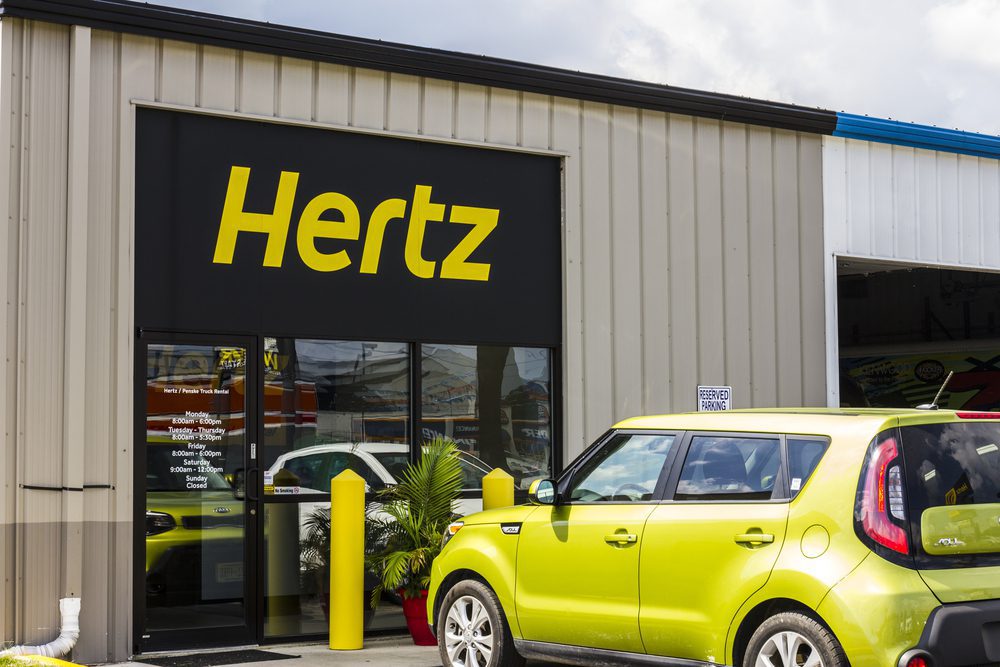As the coronavirus pandemic drags on, the auto industry continues to be impacted in many ways. There is no doubt manufacturers and dealers have faced many hurdles over the past year, which includes innumerable problems on supply chains. J.D. Power’s Tyson Jominy stated that “every day, there is practically a new supply challenge,” which has caused problems at every step of the car manufacturing and buying process. Ford, for example, has cut its production by approximately 50% in Q2 due to the detrimental microchip shortage, and General Motors announced in February that it would be halting production at three of its plants.
While the effects of COVID-19 have been brutal for automakers, a lesser-mentioned niche in the auto realm that is facing challenges is the rental car industry. People did not travel much last year and therefore rental activity was exponentially lessened; in fact, Hertz incurred $1.7 billion in losses over a year, while Avis Budget Group incurred $125 million in losses despite selling off 250,000 vehicles. However, while demand is now increasing, shortages are affecting rental companies’ ability to get their hands on new vehicles.
A typical way rental car companies operate is by purchasing new vehicles in bulk at discounted prices, offering them to renters for a year or so, and then selling them at auction. However, many rental car companies sold a significant portion of their fleets when consumers stopped traveling amidst the pandemic and now, the semiconductor shortage has drastically reduced the production rate of new vehicles, leaving a shortage for rental car companies. Rental car companies have instead now been forced to snatch up pre-owned vehicles to try to keep sufficient inventory.
To sum it all up, Lauren Luster of Hertz said that, “the global microchip shortage has impacted the entire car-rental industry’s ability to receive new vehicle orders as quickly as we would like.” Adding to the problem, rental car companies prefer to buy lower-priced sedans in bulk, but seeing as consumers are more interested in trucks and SUVs now, manufacturers have halted production of smaller vehicles and are using the available microchips in larger, more expensive and in-demand ones. Hertz filed for Chapter 11 bankruptcy in May 2020 and is still working on its reorganization plan.
Luster stated that to combat the problem, the rental giant is “supplementing [its] fleet by purchasing low mileage, pre-owned vehicles from a variety of channels including auctions, online auctions, dealerships and cars coming off lease programs.” An Enterprise spokesperson said that while inventory is still low, Enterprise is “working hard to secure additional vehicles — both new and low-mileage used vehicles — through all channels to meet the ongoing increase in demand.”
Recent Manheim Index records indicate that wholesale auction prices are up 52% compared to a year ago. Cox Automotive’s chief economist, Jonathan Smoke, stated that Cox analysts have projected retail prices will “continue to rise into the summer, as retail trends tend to follow wholesale trends with a six-week lag.” Experts all across the auto industry also expect the supply chain problems to continue throughout the next quarter.
But what does this mean for consumers? While rental car companies struggle to find new vehicles to purchase in bulk, the shortage of rental cars available means companies can rent out the cars they have at a higher price – classic supply and demand. Brett Foote of Ford Authority noted that rental car prices are at an all-time high, with high-demand areas charging $300 to $500 per day – more than a hotel room in many areas. Consumers who are beginning to travel again as states open and people get vaccinated may not be happy with the uptick in costs; however, we will have to bear it until supply chains can get back up to speed.
Did you enjoy this article from Kimberly Hurley? Read other articles on CBT News here. Please share your thoughts, comments, or questions regarding this topic by submitting a letter to the editor here, or connect with us at newsroom@cbtnews.com.
Be sure to follow us on Facebook and Twitter to stay up to date or catch-up on all of our podcasts on demand.
While you’re here, don’t forget to subscribe to our email newsletter for all the latest auto industry news from CBT News.










